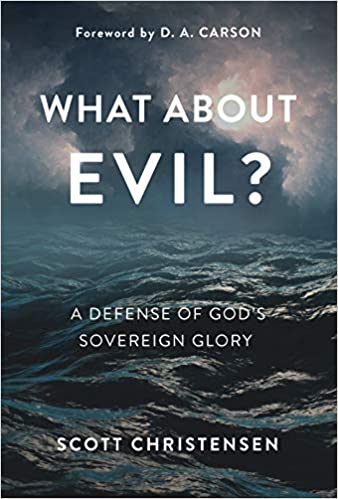Scott Christensen’s excellent book on the “problem” of evil is currently the best and most thorough available on the subject. We have featured this book previously. You may want to re-visit our Author Interview, our Book Summary, as well as our Brief Book Notice.
One question that often arises in this connection is, “Did God create evil?” If God created everything that is, then didn’t he create evil? The answer requires considerable nuance, and so recently we asked Scott Christensen to provide an answer for us. See below.
Did God Create Evil?
God cannot be said to be the direct, efficient, or immediate cause of evil. In this regard, in God’s work of creation, all that he created out of nothing (ex nihilo), was good and could be nothing other than good having directly proceeded from the goodness of God.
However, God from all eternity conceived in his mind and decreed a world in which every instance of moral evil would emerge. This evil emerged immediately and directly from the freely made choices of God’s moral creatures (beginning with Satan and then Adam and Eve).
How such evil emerged from creatures created in a state of unsullied goodness remains a mystery, nonetheless, God’s creatures would never have introduced moral evil unless God had decreed it and providentially ensured that it would take place. Thus, while God is the efficient (direct) cause of good in the same way the sun is the efficient (direct) cause of warmth and light, he cannot be the efficient cause of (i.e., fountain of) evil. Rather he can be said to be its deficient cause, much as the sun is not the efficient cause of cold and darkness but rather its deficient cause.
Furthermore, God would never decree or providentially ensure the occurrence of any instance of evil that did not have a greater good that emerges precisely due to the occurrence of that evil. It must be true that such greater goods would not have otherwise occurred without the occurrence of the evils connected to those greater goods. Thus, God, of necessity, must have a sufficiently good and wise reason for any particular instance of evil.
Furthermore, God is not obligated to reveal such reasons to our personal satisfaction. We may or may not ever know in part or in full his specific reasons for a particular instance of evil. It suffices for us to know that he has a sufficiently good and wise reason for every occurrence of evil, and knowing that in the end all instances of evil, broadly speaking, serve to supremely manifest God’s glory to his creatures in ways that it could not be manifest without the occurrence of those evils, whether they highlight his just condemnation and judgment of evil or the mercy connected to his plan of redemption from and defeat of evil via the person and work of Christ. God’s supreme glory manifested in judgment and mercy could never be known apart from the occurrence of evil. All instances of the specific evils God decreed serve in one way or another to highlight God’s supreme glory in judgment or mercy.
Buy the books

WHAT ABOUT EVIL? A DEFENSE OF GOD'S SOVEREIGN GLORY, by Scott Christensen